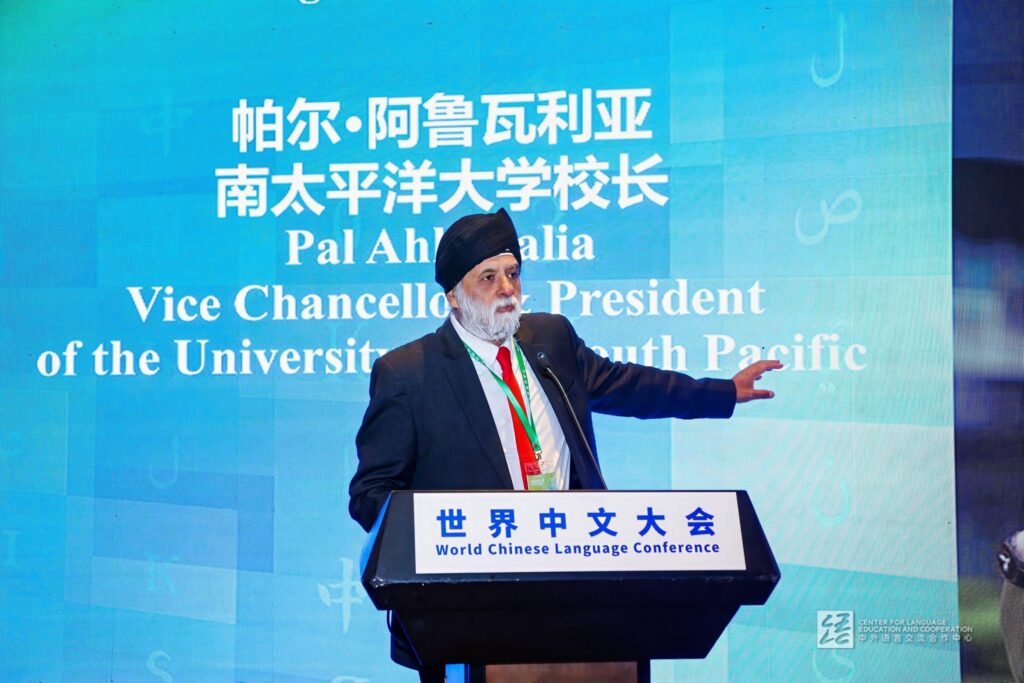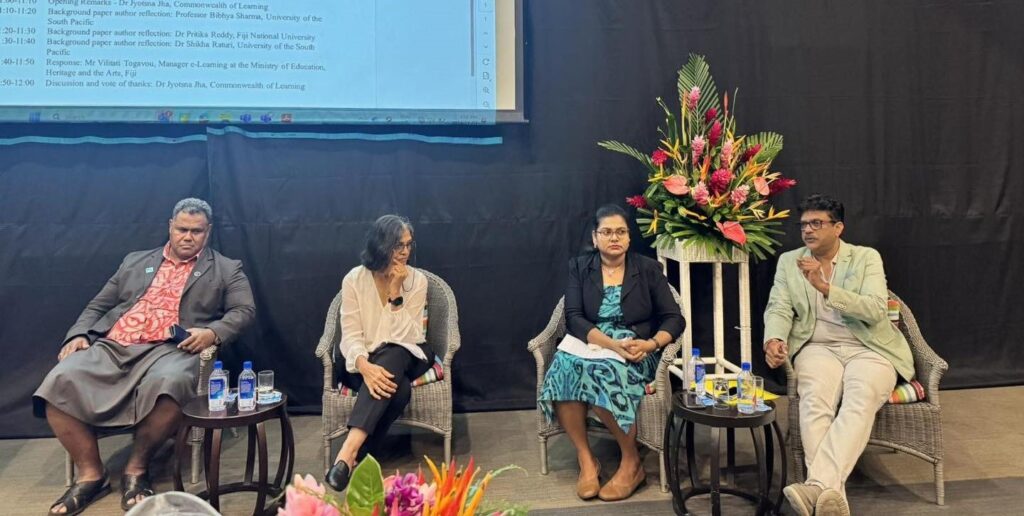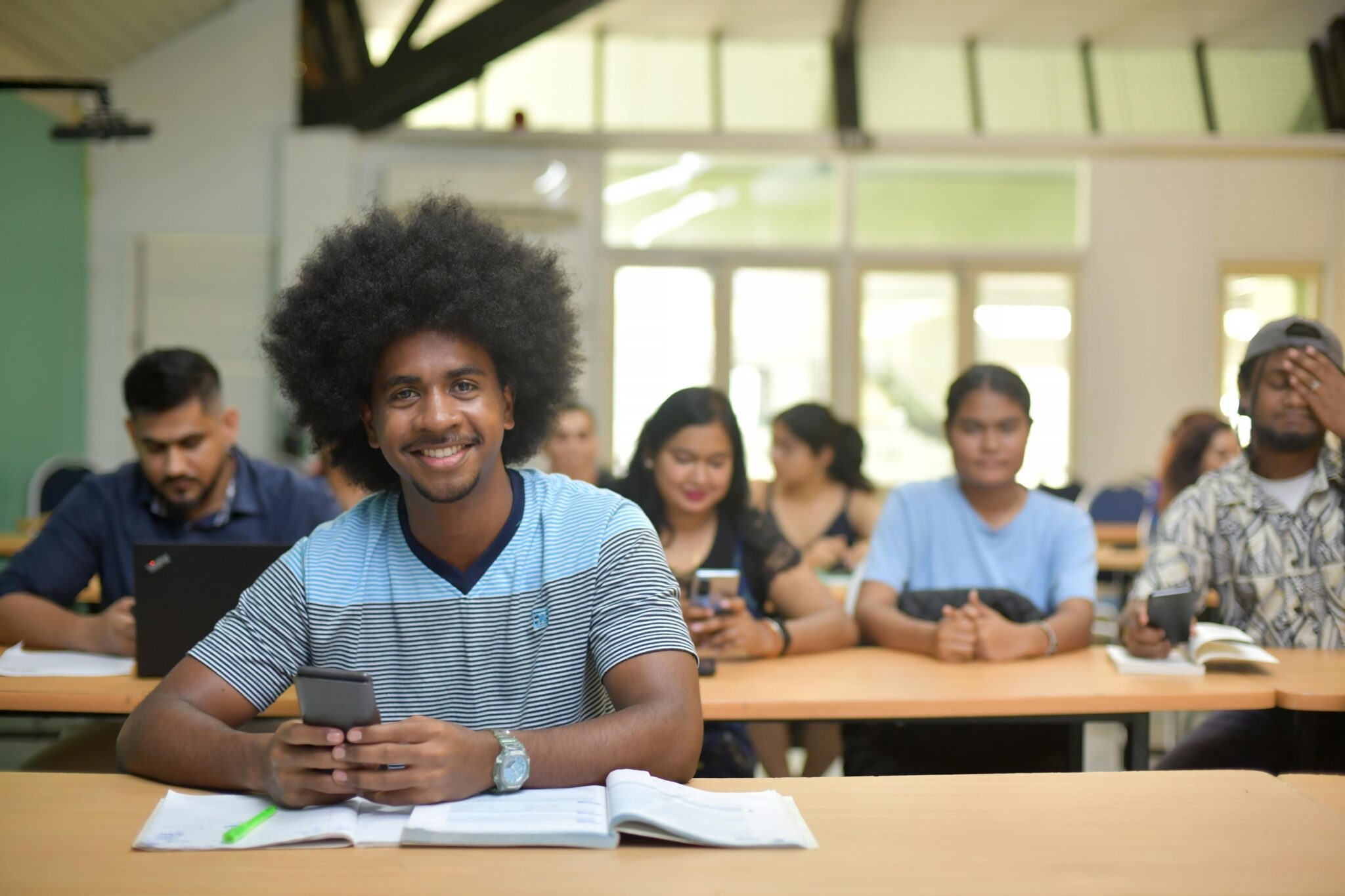The University of the South Pacific (USP) is one of the biggest multi-mode universities in the Commonwealth, offering face-to-face, blended and online learning options for students.

The 2024 Global Education Monitoring Report for the Pacific, published by UNESCO in partnership with the Commonwealth of Learning (COL), focused on technology in education in the Pacific and highlighted USP’s important role and responsibility in providing learning opportunities and accessible education to the region.
Established in 1968 in Fiji, the report noted that USP is an advanced example of open and distance learning.
USP was the first higher education institution in the Pacific region to establish its satellite communication network to connect its main campus in Laucala, Fiji with other campuses in its 12 member countries. Technology has expanded learning opportunities in the Pacific, particularly in higher education.
Initiated by COL, the Pacific Centre for Flexible and Open Learning for Development (PACFOLD) is a community of practitioners and researchers who promote the development and application of open, flexible and distance learning methods and technologies.
In cooperation with PACFOLD, the Centre for Flexible Learning at USP focuses on studying characteristics of various technologies and has assisted students and professionals in the implementation of learning management platforms, including Moodle, Lecture Capture and pedagogical tools such as multimedia production, graphics and web interaction.
The report on the Pacific covers Australia, Cook Islands, Federated States of Micronesia, Fiji, Kiribati, Marshall Islands, Nauru, New Zealand, Niue, Palau, Papua New Guinea, Samoa, Solomon Islands, Tonga, Tuvalu, Tokelau and Vanuatu.
It also noted USP’s readiness to implement open and distance learning to respond to education emergencies such as during the COVID-19 pandemic.

USP School of Information Technology, Engineering, Mathematics and Physics (STEMP) Head, Professor Bibhya Sharma, delivered a background paper author reflection earlier this month during the Fiji launch of the report.
Professor Sharma shared insights from various chapters and emphasized the need for technology solutions tailored to the region’s specific challenges and ensuring that these are sustainable, equitable and inclusive. He also highlighted the importance of proper groundwork before any such intervention to ensure its long-term success.
The event was followed by a productive discussion among attendees, including USP academic Dr Shikha Raturi, Dr Pritika Reddy, fellow educators, ministries, policymakers, and international representatives on strategies for closing the digital and gender divide in Pacific education.
USP Vice-Chancellor and President, Professor Pal Ahluwalia recently attended the World Chinese Language Conference in Beijing, China. He also shared insights on how USP has leveraged technology via Open, Distance and Flexible Learning (ODFL) for decades to enhance the learning experiences and quality educational outcomes throughout the Pacific.
It was also interesting to learn how ongoing innovations across the Artificial Intelligence (AI) sector could impact higher education.
I also had the opportunity to engage with fellow Vice-Chancellors and experts from across the globe. Maintaining and optimizing partnerships with tech companies will be vital for higher education institutions as we undergo a period of rapid technological advancement, facing both challenges and opportunities in the sector.
Professor Ahluwalia
Students who are interested in studying at USP can Apply Now for Semester 1, 2025 studies.
Visit our website at www.usp.ac.fj to explore our wide range of internationally accredited programs from our six schools and two centers.
Apply Now at www.usp.ac.fj/apply

